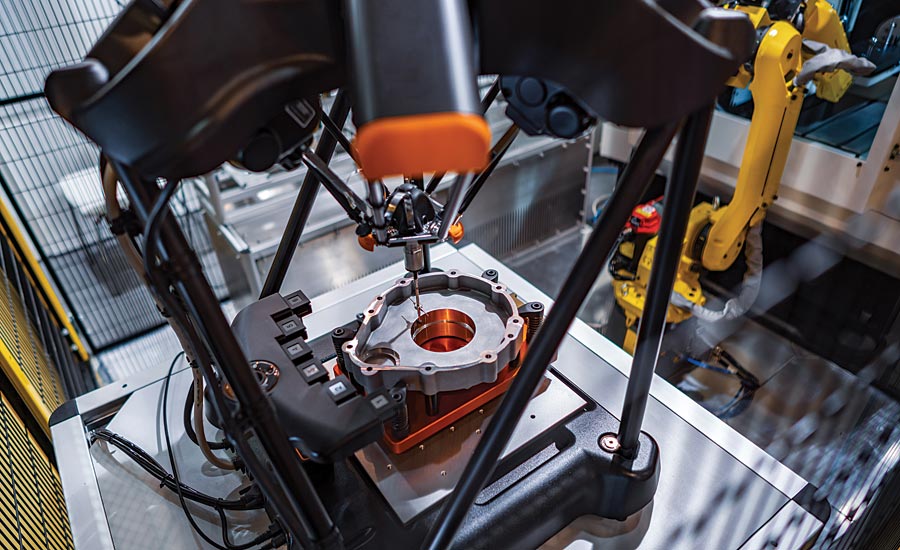
SA desperately needs a manufacturing revival
Posted on 6th Aug 2020
Article by: Roy Cokayne
Focusing on local procurement can induce a ‘virtuous demand cycle’ of boosted production, employment and people buying more local products: Manufacturing Circle’s Philippa Rodseth.
Manufacturing is a key cog in the wheel of SA’s economy, especially because of the multipliers associated with it, such as the high labour absorption rate and enabling exports.
This is according to Department of Trade, Industry and Competition (dtic) chief director of industrial procurement, development and localisation Tebogo Makube, who was part of a Gauteng Growth and Development Agency (GGDA) webinar on Tuesday, titled ‘Resuscitating Gauteng’s manufacturing as a catalyst for growth’.
Makube said economic growth is key for South Africa, particularly as the country has been struggling for over a decade to achieve economic growth of at least 2% to 3%, when the National Development Plan targets 6% economic growth to allow South Africa to deal with some of the challenges in the country.
Manufacturing therefore is a key element here.
“We must accept there is no country that has developed relying on imports only,” said Makube.
“Countries must manufacture and develop. The World Bank is forecasting that the economy is going to contract by 7% in future, so what do you do?
“The state has a critical role in scaling up the economy. The state is very critical now, localisation is critical. We don’t have a choice.”
Localisation
However, Busmark group chief executive Patuxolo Nodada said the biggest challenge facing the dtic is how local content regulations are being implemented by municipalities because “when you buy an imported product, you are actually [externalising] jobs”.
Nodada said Busmark has managed to beat any imported bus products in terms of price; its bus rapid transit market share is about 80% as a result of localisation.
“If we want to create jobs in the country, read the local content legislation, understand, challenge our government in terms of implementation and monitoring of local content. That is the only way you will achieve job creation in any sector,” he said.
Anand Mehta, owner and MD of pharmaceuticals manufacturer Pharma-Q, said globalisation has become localisation because of Covid-19 and that it is essential for every country in the world to become self-reliant and self-sufficient in terms of essential services and products.
“We need to invest more into manufacturing locally. We cannot live on imported products from India, China or other countries.
“Yes, there is a cost in terms of all of these but at the end of day a small cost saving in terms of importing it cheaper from India or China in terms of pharmaceuticals leads to a bigger disaster.
“It leads to unemployment, lack of skill in this country, a balance of payment deficit because of the forex going out of the country; it leads to lesser investments that could have come into the country but now the products are being imported.
“This pandemic has taught us a lot and in the future a lot more local manufacturing facilities will [be established] to manufacture products locally, not just for South Africa but the African continent,” he said.
Mehta added that the sharp reduction in interest rates since the beginning of the year and its impact on the cost of capital has made it a lot more feasible to invest in manufacturing and for companies to “control their own destiny”.
Manufacturing revival needed
GGDA group chief executive Mosa Tshabalala said there is a need to look at how manufacturers are supported to prepare themselves to participate or benefit from the African Continental Free Trade Area (AfCFTA) when it becomes effective.
The OR Tambo Special Economic Zone, for example, is being expanded to, among other things, revive rail manufacturing.
She said the GGDA is also supporting rail manufacturers to create markets in South Africa, across the continent and the world for the various products they manufacture in South Africa.
“Using that AfCFTA, we are preparing ourselves, creating a blueprint to look at the specific sectors that we would want to target in the different trade blocs of the regions of the continent and are already working ahead to identify key locations for various component manufacturers within the rail and other sectors as well.”
Manufacturing Circle executive director Philippa Rodseth called on every South African to support manufacturers by becoming “local manufacturing advocates” and promote the reputation of locally manufactured products.
“Manufacturing also has to do with economies of scale and the more we manufacture, the more competitive we can become because we don’t want to become a wasteland of imports.
“It doesn’t necessarily make sense to manufacture every single item locally but we need to see where those pockets of advantage sit,” she said.
If government and industry work together in terms of local procurement, it will increase demand and the country will start to get to “a virtuous demand cycle” where production in factories increases, which then can employ more people who can buy more local products, she said.
